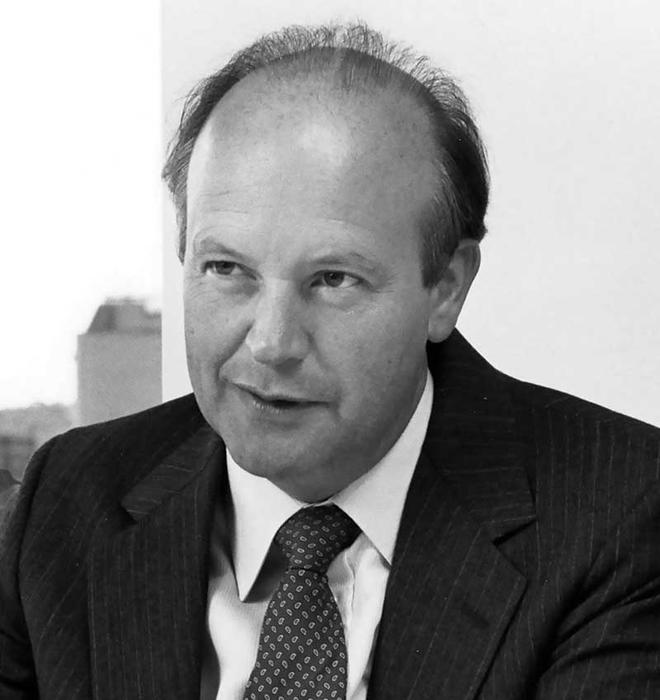
Lives: John H. Williamson *63
A Gifted and Pragmatic Economist Whose ‘Consensus’ Was Misinterpreted
June 7, 1937 – April 11, 2021
A leading scholar and policymaker in international economics, John Williamson *63 had a seemingly insatiable wanderlust. Described by friends and family as a champion of globalization and a citizen of the world, Williamson traveled to more than 100 countries.
Many of his trips were for work. But, after conferences or meetings with government officials, he usually would tack on a day or two for his passion of birdwatching. He would snap pictures of the wonders he saw, and, when he got home, he would share his adventures with his kids. “We’d sit down for this huge slideshow after every work trip,” says his daughter, Theresa Williamson. “It was like he had taken us with him.”
Raised by a rose grower and a homemaker in a rural town in western England, Williamson was not exactly destined to be a globetrotting economist. But he showed intellectual gifts at an early age, and in 1960, after graduating from the London School of Economics, he boarded the RMS Queen Mary for a transatlantic voyage to study at Princeton, where he got his Ph.D. degree.
Williamson taught economics at universities around the world and devised policies for governments and organizations like the World Bank and the International Monetary Fund (IMF). He authored 14 books, co-authored eight, and wrote scores of academic papers, developing influential ideas on heady subjects such as exchange-rate policy.
But, when he died in April, newspapers around the world focused on a single term that he coined three decades ago: the Washington Consensus.
Williamson first used the term in 1989. At the time, Latin American countries were struggling to deal with a raging debt crisis, and the United States government, the World Bank, and the IMF — which all are based in Washington, D.C. — were debating what to do about it. Williamson and his colleagues at what is now called the Peterson Institute for International Economics convened a conference to reflect on the debt crisis.
Preparing for the conference, Williamson wrote a background paper that outlined 10 prescriptions that policymakers in Washington seemed to agree upon. “The three big ideas here are macroeconomic discipline, a market economy, and openness to the world,” summarized Williamson, a pragmatic thinker who saw himself as a progressive fighter for the developing world. He thought these reforms would help Latin America.
Almost immediately, the Washington Consensus took on a life of its own. Policymakers based in Washington pursued policies Williamson never believed in, such as deep cuts to social safety nets and complete freedom for foreign capital to enter and exit nations. Left-wing activists and politicians came to see the package of reforms as a kind of one-size-fits-all market fundamentalism, even as neocolonialism perpetuated by a Washington conspiracy. They believed the reforms stunted national development and increased inequality.
“I used to refer to the Washington Consensus as my illegitimate brother,” jokes Theresa Williamson, who was inspired by her father and mother, Brazilian economist Denise Rausch, to create and run a nonprofit. She says her father expressed regret in calling the set of proposed reforms in his 1989 paper the Washington Consensus. “For him, it was not a point of particular pride,” she says. “It was just a term in a paper he wrote prior to a conference that was meant to stimulate discussion. And it was taken to mean something else.”
In a 1999 paper he wrote for the World Bank, Williamson bemoaned that the Washington Consensus had come to be “used to describe an extreme and dogmatic commitment to the belief that markets can handle everything.” He always believed in a robust role for government in the economy and for policies aimed at reducing inequality and poverty.
“While it is jolly to become famous by inventing a term that reverberates around the world,” Williamson wrote, “I have long been doubtful as to whether the phrase that I coined served to advance the cause of rational economic policymaking.”
Greg Rosalsky *13 is a reporter and writer at NPR’s Planet Money.






No responses yet